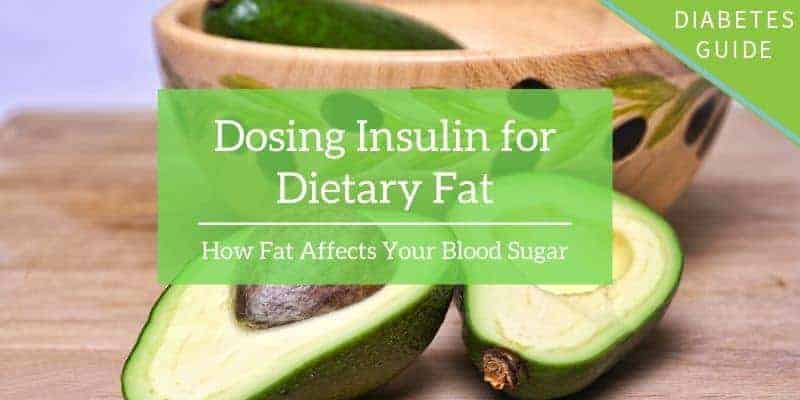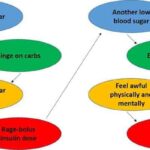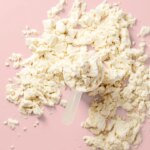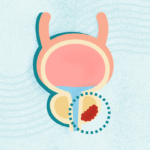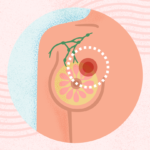The second you’re identified with diabetes, you’re taught that carbohydrates have the best impact in your blood sugar ranges. That is true, however dietary fat and protein additionally have an effect on blood sugar.
We want fats in our food regimen for taste and well being, however as individuals with diabetes, we want to concentrate on when and why it impacts our blood sugar ranges.
On this article, we’ll clarify how dietary fats impacts blood sugar ranges and insulin wants.
What’s dietary fats?
Fat, like carbohydrates and proteins, are “macronutrients.” Macronutrients are the one supply of energy gasoline For the human physique!
Dietary fats incorporates 9 energy per gram. It is greater than twice as a lot protein and carbohydrates, and weighs 4 energy per gram. However that does not imply fats is unhealthy. In truth, dietary fats is crucial in your long-term survival!
However dietary fats is should not have It breaks down into glucose, like carbohydrates (and generally proteins). As a substitute, it breaks down into fatty acids. With out these fatty acids out of your food regimen, your physique will finally not operate.
You want fats in your food regimen:
- Absorbs nutritional vitamins A, D, E and Okay
- Protects organs
- Maintains wholesome progress of pores and skin, hair and nails
The dietary fats can be very satisfying. Consuming apples naturally makes you hungry, for instance, however consuming apples with a considerable quantity of fats from peanut butter and cheese will take longer to digest the fats than carbohydrates, which is able to make your physique longer to last more.
How dietary fats impacts your blood sugar ranges
A food regimen containing 8 grams of fats doesn’t considerably have an effect on your blood sugar ranges, however consuming greater than 15 grams of fats in a single or a brief time period may cause issues if you’re not prepared.
Let’s have a look…
Dietary fat can gradual digestion for a number of hours
Consuming giant quantities of dietary fats directly additionally slows down carbohydrate digestion throughout your meals.
For whom Please do not Take insulin, which might truly assist forestall post-meal spikes in your blood sugar ranges.
For individuals taking insulin, that is troublesome to handle. As a result of it modifications the timing when your physique wants insulin for its food regimen. As you’re instructed to do usually, while you take insulin while you begin consuming, the carbohydrates develop into energetic in your bloodstream earlier than they’re digested and damaged down into glucose.
As a substitute, it will be ultimate to extend the dose of insulin just a little. In case you are consuming a high-fat food regimen that incorporates carbohydrates, Gary Please, MS, CDE The authors of Assume Like a Pancreas counsel:
- Divide the calculated insulin dose in half.
- Take the primary half of your dose while you begin consuming.
- Take the second half of your dose 1-2 hours after your dosing Completed eat.
- For these utilizing an insulin pump, you are able to do this with an “increasing bolus”.
- For these receiving a number of every day injections, you simply must get two separate injections.
Spreading the food regimen over a number of hours coincides with the digestibility of its high-fat food regimen.
Dietary fat may set off the liver by releasing glucose!
Sadly, it is not as straightforward as dividing the insulin dose in half. Actually Excessive-fat meals comparable to pizza, Chinese language meals, and wealthy ice cream.
For those who eat a meal that incorporates greater than 30 grams of fats (it may be simply performed with a number of slices of pizza), its excessive fats content material can have an effect on your blood sugar ranges for as much as 12 hours because of the liver.
The liver often produces very small quantities of glucose 24 hours a day. This helps present the physique and mind with the gasoline they want whereas sleeping and between meals.
The sugar produced by the liver comes from “glycogen storage,” which basically shops glucose. The liver is designed to launch this “backup” glucose as a gasoline supply for different conditions, like adrenaline-inducing curler coaster rides, soccer video games, hectic discussions, dawning phenomena, and horrifying moments of “preventing or flying.”
Whenever you eat very giant quantities of fats, the liver produces extra glucose because of insulin resistance. The liver feels that it has a better stage of insulin resistance because of its excessive fats mass and tries to stability this by producing extra glucose.
That is often suppressed by the presence of insulin. That is routinely managed by non-diabetic sufferers by producing extra insulin. In individuals with diabetes, after a big, extremely fatty meal, because of this it is advisable take extra insulin now and again as much as 12 hours.
Gary Scheiner recommends a number of methods to handle this.
- For pumps: Set a brief basal price enhance by 50% 8 hours after meals.
- For injections: Inject insulin after consuming NPH (lasting 8-10 hours) or usually (lasting 4-6 hours).
- Along with splitting the dosage of your meal, you’ll be able to add one other small infusion of insulin, which acts quickly 4 hours after consuming.
Work along with your healthcare group to determine the perfect method for you!
Why Ketogenic Diets Can Improve Your Insulin Want
This glucose manufacturing from the liver can be the rationale why some individuals see their insulin wants rise Once they begin following the ketogenic food regimen. This may be very complicated and irritating provided that low carbohydrate and ketogenic diets are promoted as lowering insulin wants and reducing blood sugar ranges.
For many individuals, that is true! However for some, it is not that straightforward.
Very excessive fats consumption in a high-fat food regimen method means low insulin as there are only a few carbohydrates at first, however it might probably enhance your insulin wants by means of insulin resistance brought on by the presence of dietary fats.
For some individuals, that is harder to handle than merely consuming a meal that incorporates extra carbohydrates. Particularly, it means you’ll be able to profit from a low-carbohydrate medium-fat protein food regimen costly– Fats food regimen.
For others, a high-fat, low-carb food regimen means smoother blood sugar ranges and decrease general insulin dosages.
Anyway, it is advisable know what’s finest in your physique and work intently with an skilled endocrinologist or CDE to fine-tune your insulin administration method!
